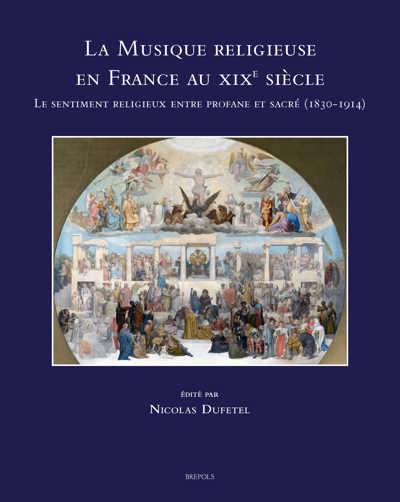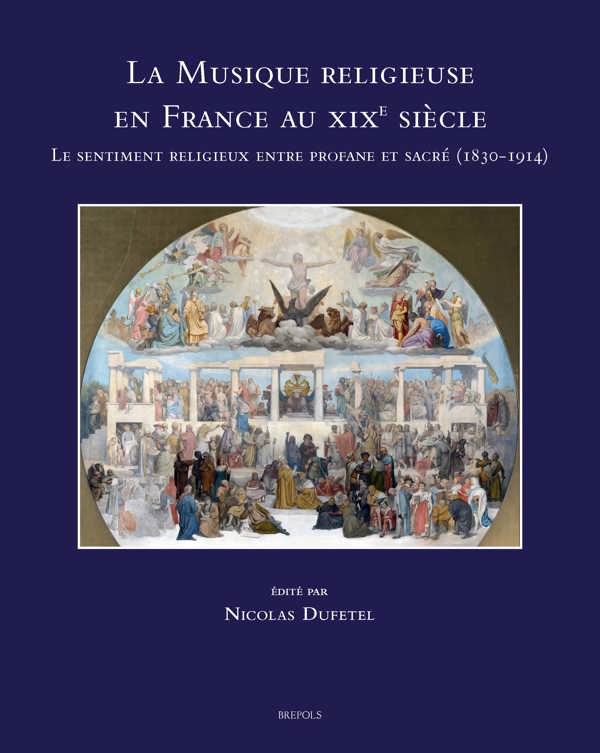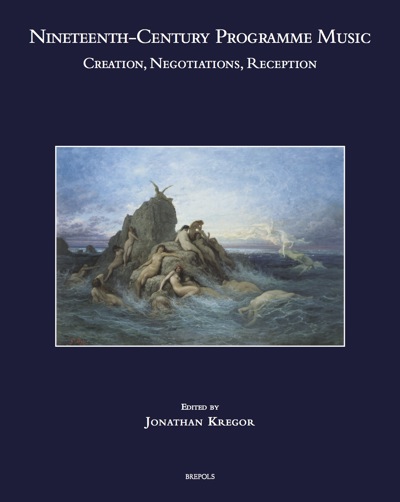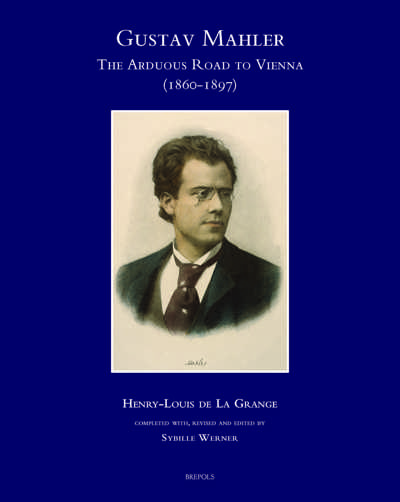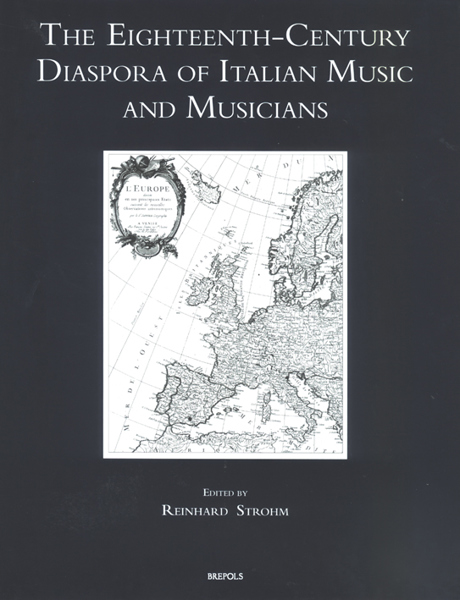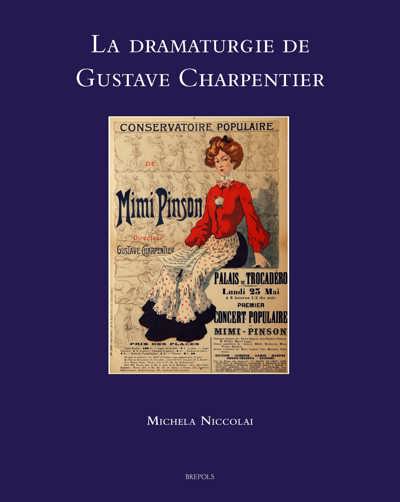
La Musique religieuse en France au XIXe siècle
Le sentiment religieux entre profane et sacré (1830-1914)
Nicolas Dufetel (ed)
- Pages: lvi + 436 p.
- Size:210 x 270 mm
- Language(s):French, English
- Publication Year:2022
- € 150,00 EXCL. VAT RETAIL PRICE
- ISBN: 978-2-503-59777-5
- Hardback
- Available
This volume investigates religious music in France during the 19th century, after the disruption of the French Revolution and the Concordat (1801), until a few years after the Law of Separation of Churches and State (1905).
“Nicolas Dufetel’s book is an excellent gateway to the further study of nineteenth- and twentieth-century sacred music in France. Like Liszt himself, whom Dufetel has described as a Janus figure in relation to tradition and innovation, it is likely to mark an important articulation point in this burgeoning field of study.” (Katharine Ellis, in Oxford University Press, 13/12/2022)
”The present book warrants gratitude simply for existing. Let it merely be noted (by way of heartfelt, if insufficiently majestic, conclusion) that La Musique religieuse en France au XIXe siècle needs to be read and pondered by everyone with the slightest interest in sacred French music, or in French music more generally.” (Robert James Stove, in Musicology Australia, 12/07/2023)
"Questa bellissima silloge di studi arricchisce ulteriormente le preziose collane del Centro Studi Opera Omnia Luigi Boccherini e in più trova la prestigiosa collaborazione scientifica del Palazzetto Bru Zane-Centre de musique romantique française." (Galliano Ciliberti, in Ad Parnassum: A Journal of Eighteenth- and Nineteenth-Century Instrumental Music, 42/23, 2024, p. 147)
"This volume of more than 400 pages has a richer structure than the usual conference volumes. From its 45-page introductory essay to its index, the volume is comparable to a monograph. Each study includes a bibliography on the subject and provide illustrations, facsimiles, music examples, and tables to enrich the texts. A short abstract in English provides information on the subject of each essay. Overall, this sophisticated scholarly publication provides the reader with a wealth of new material on a central subject, while at the same time it provides an enjoyable and wide-ranging approach to the Catholic church music of nineteenth-century France." (Zsuzsanna Domokos, in Studia Musicologica, 66/1-2, 2025, p. 155)
"La musique religieuse en France au XIXe siècle stands as an indispensable, erudite, nuanced and masterfully constructed work. Through its extensive documentation, intellectual coherence and theoretical ambition, it fully honours the tradition of excellence of the Brepols Speculum Musicae series." (Arthur Skoric, in Nineteenth-Century Music Review, published online, December 2025)
Nicolas Dufetel is a Research Rellow at the CNRS and deputy director of IReMus. Author of a thesis on Liszt’s religious music, he was subsequently visiting scholar at the BnF, fellow of the Houghton Library (Harvard University) and postdoctoral fellow of the Alexander von Humboldt Stiftung (Hochschule für Musik Franz Liszt, Weimar). His work focuses on Liszt, more generally on the 19th century and the history of Western music in the Ottoman Empire.
This volume investigates religious music in France during the 19th century, after the disruption of the French Revolution and the Concordat (1801), until a few years after the Law of Separation of Churches and State (1905). With its various and complicated forms — choral, instrumental, orchestral, etc.— and aesthetic concepts, 19th-century French religious music echoes the many facets of religious life in France, dominated by the Catholic faith, but diversified into many neo-Catholic systems (saint-simonism, humanitarianism, ultramontanism, etc.). Religious music interacts with society, moral philosophy, aesthetics, and politics. Thinkers such as Lamennais, Lacordaire, Montalembert, Dom Gueranger, and Renan, who had a deep influence on their contemporaries, were influential on musicians. The ideas of music writers such as Fétis, d’Ortigue, Félix Clément are also studied. The texts in this volume explore the relation between music and worship, the liturgical movements and reforms, and the adoption of the Roman rite. Of particular interest is the research on plain-chant and its role in liturgy and musical compositions, as well as its intersections with politics. Case studies (Berlioz, Gounod, Liszt, Saint-Saëns, Massenet, d’Indy, Fauré) illustrate these questions. Finally, several texts investigate the presence of religious elements in cabaret, and the educational or secular repertoire. According to D’Ortigue, «If one bases one’s thoughts on what we call ‘religious sentiment’, there are no more rules, no more limits». «Religious sentiment» allows a global view of secular and sacred conceptions, and explains the great musical variety in a period divided between tradition, science and faith.
Nicolas Dufetel
Introduction
Syncrétisme, éclectisme et sentiment religieux: Les transformations de la musique catholique en France au XIXème siècle entre profane, sacré et politique
Musique religieuse, culte et société
Clair Rowden
Catholicism and Moral Philosophy in Nineteenth-Century France
Vincent Petit
La musique et le chant dans le culte catholique en France au XIXème siècle
Nicolas Dufetel
Charles Gay, Liszt et Gounod: «artistes chrétiens» entre Paris et Rome. Les années 1830 aux sources du catholicisme romantique
Catrina Flint de Médicis
Between the Impersonal and a «Parcel of the Soul»: Sacred Music Debates and the Parisian Schola Cantorum
Le plain-chant: liturgie, archéologie et politique
Benedikt Lessmann
Le chant grégorien en France (1811-1908): entre liturgie, science, politique et esthétique
Amélie Porret-Dubreuil
Figures de la restauration de la musique d'Église: physionomie du Congrès pour la restauration du plain-chant et de la musique d'église, Paris 1860
Nicolas Dufetel
Les sources françaises du plain-chant et de la Sainte Élisabeth de Liszt: D' Ortigue, Montalembert, Raillard, Lambillotte et quelques autres
Musique sacrée et 'Sacrée Musique' dans l'Église: études de cas
Sylvia L'Écuyer
D' Ortigue, Berlioz, le Te Deum, et la «vraie» musique religieuse
Alban Ramaut
Hector Berlioz et l'expression du spirituel
Christina M. Stahl
Confessions de foi d'un incroyant: la musique religieuse de Camille Saint-Saëns
Helga Schauerte-Maubouet
La musique religieuse de Gabriel Fauré: ordre et beauté, luxe, calme et volupté
Hors de l'Église: le sentiment religieux entre profane et sacré
Michela Niccolai
Le religieux ‘populaire' dans la chanson: entre cabarets et maisons d'éducation pour les jeunes filles. L'exemple du Fonds Bornemann (1850-1910)
Jean-Christophe Branger
«L'amour, ineffable mystère, Nous fut donné par l'Éternel»: Massenet et l'expression du sentiment religieux
Timothy Flynn
Newly Discovered Works by Charles Gounod: An Introduction to Some Unique Manuscript Sources at Northwestern University
Jennifer Walker
Les Drames sacrés and Sacred Drama: Armand Silvestre, Eugène Morand, and Charles Gounod on the Neo-Christian Stage
Pauline Génissel
Le «Principe religieux» de Vincent d'Indy appliqué au Chant de la cloche
Abstracts and Biographies
Index
